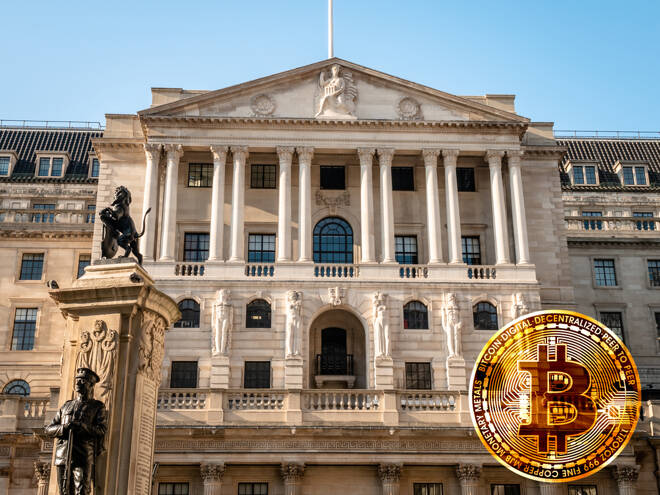Advertisement
Advertisement
The UK’s Central Bank Pushes for Global Crypto Regulatory Talks
By:
The Bank of England is calling for the world's Financial regulators to find ways of Monitoring cryptocurrencies.
The Bank of England plans to hasten talks between financial regulators around the world in order to find ways of monitoring and regulating cryptocurrencies. In an interview with the Times, Sarah Breeden, the bank’s executive director for financial stability strategy and risk, said that there was an emerging need for stronger rules to regulate the crypto space on a global scale. The director also acknowledged the increasing number of banks and institutional investors getting involved in the crypto sector.
A Need for Crypto Regulatory Talks
Ms. Breeden pointed out the difficulty in obtaining data on the crypto holdings of institutional investors highlighted the need for cooperation between central banks and assorted regulators around the world. Her sentiments were mirrored by the Bank of England’s Financial Stability Board (FSB), which has spent the last few years developing a framework for the regulation of crypto.
The FSB also supports the work of the Crypto Assets Taskforce, which was set up in 2018 to lay out the UK’s policy and regulatory approach to unbacked cryptocurrencies and their associated market activities. The task force consists of representatives from HM Treasury, the Bank of England, and the Financial Conduct Authority (FCA).
In further news, the growing importance of stablecoins, which are a type of backed crypto asset used to make payments, has prompted cross-border payment platforms like MoneyGram to start contemplating the use of stablecoins to help accelerate cross-border transactions.
A recent report from crypto data aggregator, CoinGecko, indicates that more than $133 billion worth of tokens have been minted by stablecoin issuers. With this in mind, HM Treasury has made proposals to create a regulatory regime for stablecoins and bring them into the regulatory remit of the Bank of England.
Digital Currencies’ Poses No Risks to The UK Financial Network
In its recently released Financial Stability Report, the FSB indicated that crypto assets currently hold little direct risk to the United Kingdom’s financial stability. However, the report also acknowledged that a number of financial stability risks could arise as digital assets continue to grow and become more integrated with traditional financial networks.
The FSB pointed out that 95% of the $2.6 trillion crypto industry is made up of unbacked digital assets. Unbacked assets are crypto tokens with no underlying intrinsic value, which makes them vulnerable to major price corrections.
If institutional investors were to put their clients’ money into such crypto assets, a large fall in the asset’s valuation may cause the investors to sell off other financial assets to cover their losses and inadvertently cause a spillover through the country’s financial network.
It is because of the volatile nature of crypto assets that the FSB has called for the enhancement of regulatory and law enforcement frameworks, both in the UK and globally, in order to encourage sustainable innovation, manage risk, and maintain the integrity of the financial network.
About the Author
Tanvir Zafarcontributor
Tanveer Zafar is a independent crypto journalist. He is passionate in covering topics about Blockchain, Cryptocurrency and Markets. He has five years of writing experience in these areas of interest. You can find his pieces featured on FXStreet, Benzinga, Investing and many more finance magazines. Tanveer has done his BS in Software Engineering at GC University. Previously, he has worked as a banker.
Did you find this article useful?
Latest news and analysis
Advertisement
